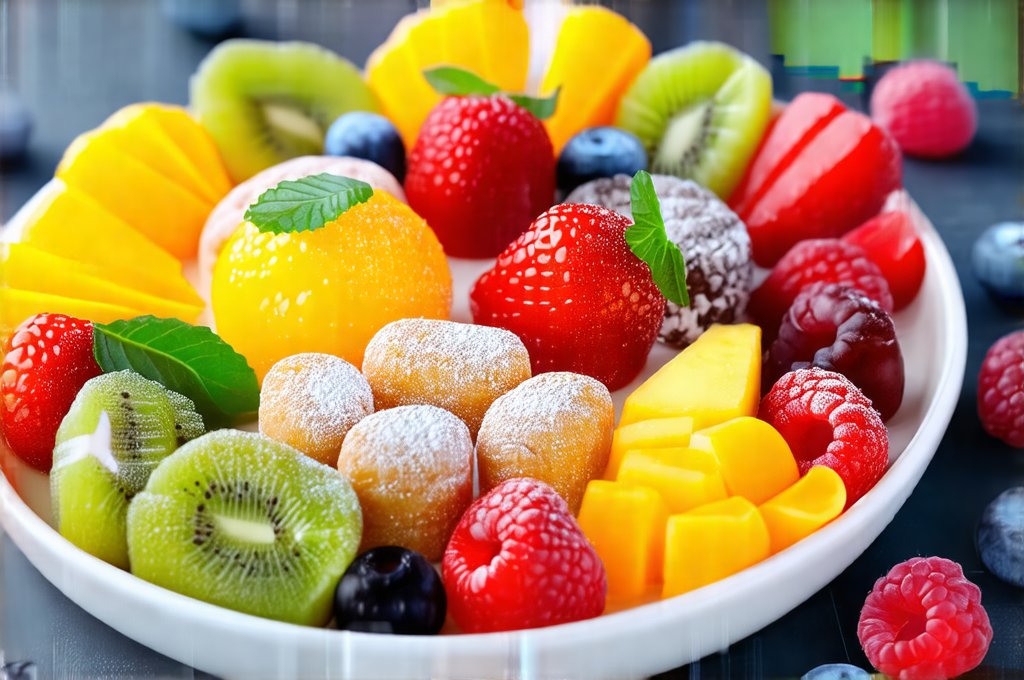Our modern diets are often filled with processed foods, excessive sugar, and artificial ingredients—all things that can disrupt the delicate ecosystem within our gut. This disruption, known as dysbiosis, isn’t just about digestive discomfort; it’s increasingly linked to a wide range of health concerns, from weakened immunity and mood swings to chronic diseases. Many people believe healthy eating means strict deprivation, but this simply isn’t true. It’s possible to enjoy delicious treats while actively supporting gut health. The key is understanding which foods nurture our beneficial gut bacteria and avoiding those that feed the harmful ones. This article will explore a variety of satisfying options that won’t compromise your microbiome—the trillions of microorganisms living in your digestive tract—and will empower you to make informed choices for both enjoyment and wellbeing.
A healthy gut isn’t about eliminating all “unhealthy” foods; it’s about balance and mindful consumption. It’s about incorporating more prebiotic and probiotic-rich foods into your diet, understanding how different ingredients affect your individual system (as everyone is unique!), and finding treats that align with a holistic approach to health. Think of it less as restriction and more as nourishing the incredible inner world within you. This means focusing on whole, unprocessed foods as much as possible, while allowing for occasional indulgences that won’t derail your progress or cause significant gut distress. We’ll focus specifically on treats—those little joys we all enjoy—that can actually contribute to a thriving gut microbiome. You might find it easier to balance [gut healing with everyday life] (https://vitagastro.com/how-to-balance-gut-healing-with-everyday-life/) while still enjoying the things you love!
Gut-Friendly Sweet Treats
The biggest challenge when it comes to sweet treats and gut health is usually sugar. While some sugar isn’t inherently bad, excessive amounts – particularly refined sugars – can feed detrimental bacteria in the gut, leading to inflammation and imbalance. However, there are ways to satisfy your sweet tooth without wreaking havoc on your microbiome. Using natural sweeteners in moderation, alongside fiber-rich ingredients, can make a huge difference. Dates, for example, offer sweetness along with prebiotic fibers that nourish beneficial gut bacteria. Similarly, fruits like berries contain natural sugars but also boast antioxidants and fiber.
Consider alternatives to traditional baked goods. Instead of cookies loaded with refined sugar and processed flour, explore recipes using almond flour, coconut flour, or oat flour—all of which are easier to digest for many individuals. Adding ingredients like chia seeds, flaxseeds, or psyllium husk further boosts the fiber content, promoting gut health. Another excellent approach is to focus on raw desserts, such as energy balls made with dates, nuts, and seeds. These require no baking and retain more of their natural nutrients. The emphasis should always be on whole food ingredients, minimizing processed components and refined sugars. It’s important to remember [foods that feel healthy] (https://vitagastro.com/foods-that-feel-healthy-but-secretly-trigger-stomach-acid/) can sometimes do more harm than good!
Finally, remember portion control. Even the healthiest treat can become problematic if consumed in excess. Being mindful of serving sizes helps maintain balance and prevents overwhelming your gut with any single ingredient, even a naturally sweet one like fruit. Experimenting with recipes and finding what works best for you is key; listen to your body and pay attention to how different treats affect your digestion and overall wellbeing.
Savory & Satisfying Snacks
Often, when we think of “treats,” our minds immediately jump to sweets. But gut-friendly snacking isn’t limited to desserts! Many savory options can be just as satisfying and offer significant benefits for microbiome health. Fermented foods are a prime example – things like kimchi, sauerkraut (unpasteurized), and kefir provide probiotics—live beneficial bacteria that directly colonize the gut. While an acquired taste for some, incorporating small amounts of these into your diet can have a powerful impact on digestive health.
Beyond fermentation, focusing on snacks rich in healthy fats and fiber is crucial. A handful of nuts (walnuts, almonds, pecans) paired with a slice of avocado provides both nutrients and satiety. Olives are also an excellent choice, offering healthy fats and antioxidants. Even something as simple as sliced cucumbers with hummus—made from chickpeas, which offer prebiotic fibers—can be a satisfying and gut-friendly snack. The key is to move away from processed snacks like chips and crackers, which often contain inflammatory oils and refined carbohydrates that can disrupt the microbiome. [Eating mindfully] (https://vitagastro.com/tips-for-eating-mindfully-with-a-reactive-gut/) can make all the difference when enjoying savory snacks!
Another aspect of savory snacking for gut health is mindful seasoning. Herbs and spices aren’t just about flavor; many possess prebiotic properties or anti-inflammatory compounds that support a healthy digestive system. Turmeric, ginger, cinnamon, and oregano are all excellent choices to incorporate into your snacks. Remember that food sensitivities play a role too – what works beautifully for one person may not work for another, so paying attention to how you feel after eating certain foods is incredibly important. If you’re struggling with discomfort, it might be worth [dealing with invisible gut pain] (https://vitagastro.com/dealing-with-invisible-gut-pain-that-comes-and-goes/).
Building Your Own Gut-Friendly Treats
Creating your own treats allows you to have complete control over the ingredients and ensure they align with your gut health goals. This isn’t about becoming a master chef; it’s about simple modifications to existing recipes or experimenting with new ones using whole food ingredients.
- Start with a base: Consider alternatives to traditional flour like almond flour, coconut flour, oat flour, or even mashed sweet potato.
- Sweeten naturally: Use dates, maple syrup (in moderation), or fruit purees instead of refined sugar.
- Boost fiber content: Add chia seeds, flaxseeds, psyllium husk, or grated vegetables to increase prebiotic fibers and promote gut health.
- Incorporate healthy fats: Include nuts, seeds, avocado, or coconut oil for added nutrients and satiety.
A great example is a date-sweetened energy ball recipe: blend dates with oats, almonds, chia seeds, and a touch of cinnamon. Roll into balls and enjoy! Or try making baked sweet potato fries seasoned with turmeric and ginger – a satisfying savory snack that supports gut health. Don’t be afraid to experiment; the possibilities are endless.
Understanding Prebiotics & Probiotics
Prebiotics and probiotics often get lumped together, but they have distinct roles in gut health. Probiotics are live microorganisms—the beneficial bacteria themselves—found in fermented foods or supplements. They directly contribute to the population of good bacteria in your gut. Prebiotics, on the other hand, are types of fiber that act as food for these probiotics, helping them thrive and multiply.
- Good sources of prebiotics include: onions, garlic, leeks, asparagus, bananas, oats, apples, cocoa, flaxseeds, and chicory root.
- Good sources of probiotics include: yogurt (with live cultures), kefir, kimchi, sauerkraut, kombucha, miso, and tempeh.
A healthy gut requires both prebiotics and probiotics working in synergy. Think of it like a garden: the probiotics are the plants, and the prebiotics are the fertilizer. Without both, the garden won’t flourish. A diet rich in diverse plant-based foods naturally provides both prebiotics and probiotics, fostering a thriving microbiome. Learning [how to balance gut bacteria with diet] (https://vitagastro.com/how-to-balance-gut-bacteria-with-diet/) is crucial for long term health!
Listening to Your Gut – Individual Tolerance
Ultimately, the most important factor is listening to your own body. What works well for one person might not work for another due to individual sensitivities or intolerances. Pay attention to how different treats affect your digestion, energy levels, and overall wellbeing. Keep a food journal if necessary to track what you eat and how it makes you feel.
- Common gut disruptors: Processed foods, refined sugar, artificial sweeteners, excessive alcohol, certain medications (like antibiotics), stress, and lack of sleep.
- Signs of gut imbalance: Bloating, gas, constipation, diarrhea, fatigue, skin issues, mood swings, weakened immunity.
If you suspect a food intolerance, try an elimination diet—removing the suspected food for a period of time to see if your symptoms improve. Reintroduce the food slowly and carefully observe how your body reacts. Remember that gut health is a journey, not a destination. Be patient with yourself, experiment with different options, and prioritize whole, nourishing foods that support your overall wellbeing. Prioritizing mindful eating, balanced choices, and self-awareness will allow you to enjoy treats without compromising the delicate balance within your gut. It’s also important to consider [morning beverages] (https://vitagastro.com/morning-beverages-that-dont-upset-your-delicate-gut/) as part of a healthy routine!


















